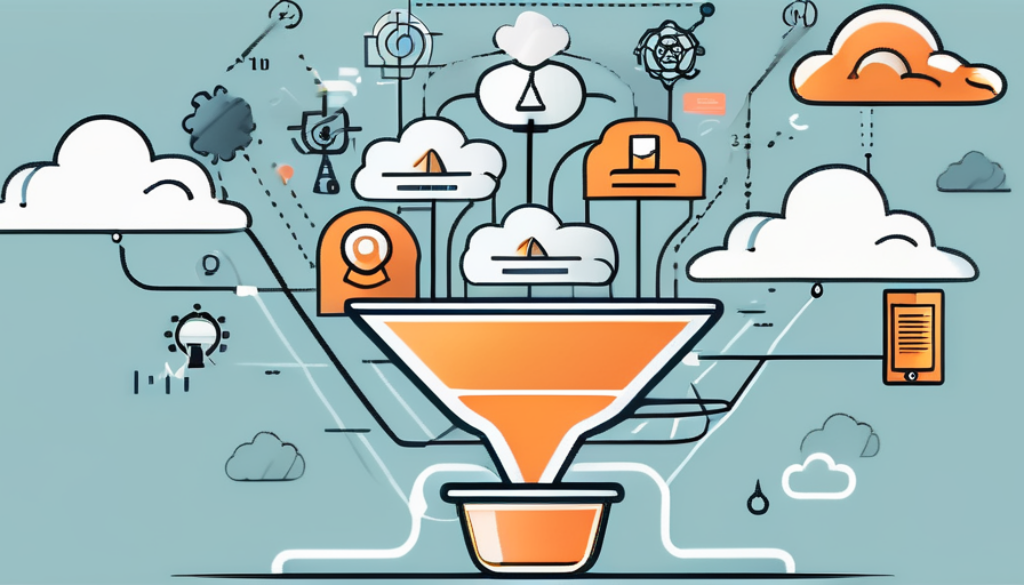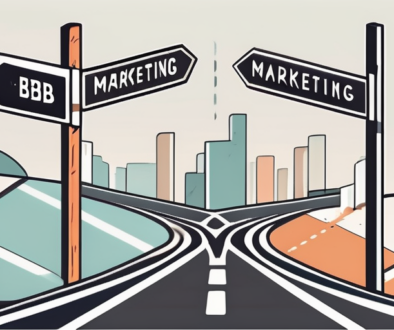Creating a Winning B2B SaaS Marketing Plan
In the ever-evolving world of business, SaaS (Software-as-a-Service) has emerged as a game-changer. With its ability to provide software solutions through a subscription model, B2B SaaS companies have revolutionized the way businesses operate. However, with increased competition in the market, it has become crucial for B2B SaaS companies to have a well-defined marketing plan in place. In this comprehensive guide, we will delve into the world of B2B SaaS marketing, explore its key components, and learn how to develop an effective marketing strategy. So, let’s dive in!
Understanding B2B SaaS Marketing
Before we delve into the details, let’s start by understanding what B2B SaaS marketing actually means. B2B SaaS marketing refers to the strategies, tactics, and techniques that B2B SaaS companies use to promote their software solutions and acquire new customers. It involves identifying the target audience, setting clear marketing goals, choosing the right marketing channels, and measuring the success of the marketing efforts.
When it comes to B2B SaaS marketing, companies often focus on creating content that educates their target audience about the benefits of their software solutions. This content can take various forms, including blog posts, whitepapers, case studies, and webinars. By providing valuable and informative content, B2B SaaS companies can establish themselves as industry thought leaders and build credibility with potential customers.
Defining B2B SaaS Marketing
Defining B2B SaaS marketing is essential to understand its core principles. It involves developing and implementing strategies to effectively communicate the unique value proposition of a SaaS product to the target audience. B2B SaaS marketing aims to generate leads, increase customer acquisition, and drive revenue growth for the company.
One key aspect of B2B SaaS marketing is understanding the buyer’s journey and aligning marketing efforts with each stage of the journey. From awareness to consideration to decision, B2B SaaS companies need to tailor their messaging and content to address the specific needs and pain points of potential customers at each stage.
Importance of B2B SaaS Marketing
B2B SaaS marketing plays a pivotal role in the success of a SaaS company. It helps create brand awareness, attract potential customers, differentiate the product from competitors, and ultimately drive business growth. Without a well-planned marketing strategy, even the most innovative and robust SaaS products may fail to gain traction in the market.
Moreover, B2B SaaS marketing is not a one-time effort but an ongoing process that requires constant monitoring, analysis, and optimization. By continuously evaluating the performance of marketing campaigns, B2B SaaS companies can identify what works well and what needs improvement, allowing them to refine their strategies and achieve better results over time.
Key Components of a B2B SaaS Marketing Plan
Developing an effective B2B SaaS marketing plan involves several key components. Let’s explore each of them in detail:
Identifying Your Target Audience
One of the first steps in creating a successful marketing plan is understanding your target audience. This includes identifying the industry, company size, job roles, pain points, and goals of your ideal customers. By understanding your target audience, you can tailor your marketing messages and initiatives to resonate with their needs and interests.
Moreover, delving deeper into your target audience segmentation can uncover valuable insights that go beyond just demographics. Understanding the psychographics of your audience, such as their values, attitudes, and behaviors, can help you create more personalized and impactful marketing campaigns. By developing detailed buyer personas based on this information, you can better address the specific needs and preferences of different segments within your target audience.
Setting Clear Marketing Goals
Setting clear and measurable marketing goals is crucial for driving the success of your B2B SaaS marketing plan. Whether it’s increasing website traffic, generating leads, or improving customer retention, well-defined goals provide a roadmap for your marketing efforts and enable you to track progress.
Furthermore, aligning your marketing goals with your overall business objectives is essential for ensuring that your efforts contribute to the growth and success of your B2B SaaS company. By establishing key performance indicators (KPIs) that directly tie back to your business goals, you can measure the impact of your marketing activities and make data-driven decisions to optimize your strategies for maximum effectiveness.
Choosing the Right Marketing Channels
The choice of marketing channels can significantly impact the effectiveness of your B2B SaaS marketing strategy. Depending on your target audience and goals, you can leverage various channels such as content marketing, email marketing, social media advertising, search engine optimization (SEO), and more. It’s essential to select the channels that best align with your audience preferences and maximize your reach.
Moreover, conducting thorough research on the latest trends and innovations in marketing technology can help you stay ahead of the curve and identify new opportunities to engage with your target audience. Experimenting with emerging channels like interactive content, influencer partnerships, or AI-powered marketing tools can set your B2B SaaS company apart from competitors and drive greater engagement and conversions.
Developing a B2B SaaS Marketing Strategy
Once you have a solid understanding of the key components of a B2B SaaS marketing plan, it’s time to develop a comprehensive marketing strategy. The following elements are vital in crafting a successful strategy:
Creating a Unique Value Proposition
A unique value proposition (UVP) is what sets your SaaS product apart from competitors. It communicates the benefits and advantages that customers can expect from choosing your solution. A compelling UVP resonates with your target audience and entices them to explore further.
Developing a unique value proposition involves conducting thorough market research to understand the needs and pain points of your target customers. By identifying what makes your product different and how it addresses specific challenges in the market, you can create a UVP that resonates with your audience on a deeper level. This process may involve gathering feedback from current customers, analyzing competitor offerings, and conducting surveys or focus groups to validate your value proposition.
Building a Strong Brand Identity
A strong brand identity plays a crucial role in attracting and retaining customers. It encompasses the visual elements, messaging, and overall perception of your brand in the market. By consistently delivering a memorable and positive brand experience, you can build trust and credibility among your target audience.
Establishing a strong brand identity requires a cohesive approach across all touchpoints, including your website, social media channels, marketing materials, and customer interactions. Consistency in branding elements such as colors, fonts, tone of voice, and imagery helps reinforce brand recognition and fosters a sense of trust and reliability among your audience. Additionally, investing in brand-building activities such as sponsorships, partnerships, and community engagement can further enhance brand visibility and reputation.
Implementing a Content Marketing Strategy
Content marketing has proven to be a powerful tool in B2B SaaS marketing. By creating valuable and informative content, you can establish yourself as an industry authority and attract potential customers. Your content should address the pain points of your audience, offer solutions, and showcase the expertise of your team.
When developing a content marketing strategy, it’s essential to identify the key topics and themes that resonate with your target audience. Conducting keyword research and analyzing industry trends can help you uncover relevant content ideas that align with your audience’s interests and challenges. Additionally, leveraging different content formats such as blog posts, whitepapers, case studies, videos, and webinars can cater to diverse audience preferences and enhance engagement levels. By consistently delivering high-quality and valuable content, you can position your brand as a trusted resource and drive organic traffic to your website.
Measuring the Success of Your B2B SaaS Marketing Plan
Measuring the success of your marketing efforts is crucial to identify areas of improvement and optimize your strategies. The following practices can help you gauge the effectiveness of your B2B SaaS marketing plan:
Understanding Key Performance Indicators (KPIs)
Key Performance Indicators (KPIs) are measurable values that indicate the performance of specific marketing initiatives. These can include metrics such as website traffic, conversions, customer acquisition cost, customer lifetime value, and more. By tracking relevant KPIs, you can assess the success of your marketing campaigns and make data-driven decisions.
For example, monitoring website traffic can provide insights into the effectiveness of your content marketing efforts. If you notice a significant increase in traffic after implementing a new blog post or landing page, it indicates that your content resonates with your target audience. On the other hand, if your traffic remains stagnant or decreases, it may be time to reevaluate your content strategy.
Utilizing Analytics for Performance Measurement
Analytics tools provide valuable insights into your marketing efforts, allowing you to track user behavior, engagement, and conversions. By analyzing this data, you can identify strengths and weaknesses in your strategy, optimize marketing campaigns, and make informed decisions for future improvements.
For instance, by analyzing user behavior on your website, you can determine which pages or features are most engaging to your audience. If you find that visitors spend a significant amount of time on a particular page or frequently interact with a specific feature, you can leverage this information to enhance other areas of your marketing plan.
Making Necessary Adjustments for Improvement
No marketing plan is set in stone. It’s essential to remain agile and adaptable to changes in the market and the needs of your target audience. Regularly assessing the performance of your marketing plan and making necessary adjustments will ensure that you stay ahead of the competition and continue to drive growth.
For example, if you notice a decline in customer acquisition or an increase in customer churn, it may be time to reassess your messaging and targeting strategies. By conducting market research and gathering customer feedback, you can identify pain points and address them in your marketing plan, ultimately improving customer satisfaction and retention.
In conclusion, a well-defined B2B SaaS marketing plan is paramount to the success of your SaaS company. By understanding the key components and developing an effective strategy, you can attract, engage, and convert your target audience. Remember to measure the success of your marketing efforts, utilize analytics, and make necessary adjustments to stay ahead in the fast-paced world of B2B SaaS marketing. Good luck!



